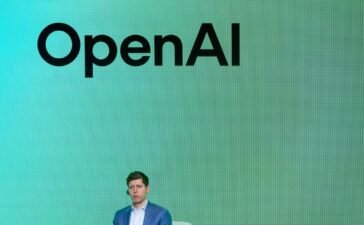Nvidia CEO Jensen Huang appears to have struck a deal with the Trump administration to avoid export restrictions on the company’s H20 AI chips.
The H20, the most advanced Nvidia-produced AI chip that can still be exported from the U.S. to China, was reportedly spared thanks to a promise from Huang to invest in new AI data centers in the U.S. According to NPR, Huang made the proposal during a dinner at Trump’s Mar-a-Lago resort sometime last week.
Nvidia declined to comment.
Many in the semiconductor industry feared H20s, which are modified to have lower performance than other Nvidia chips, were headed for restrictions because they were reportedly one of the chips China-based DeepSeek used to train its R1 open AI model. Released in January, R1 made headlines for its strong performance relative to models from U.S.-based AI labs including OpenAI.
Senators from both sides of the aisle have called for restrictions on the H20. Even the Trump administration was said to have been preparing H20 export controls prior to its reversal in course, according to NPR.
While it isn’t totally surprising that Trump allegedly agreed to shelve some potential chip restrictions in exchange for a commitment from Nvidia to invest in U.S. AI infrastructure, allowing Nvidia to continue exporting H20s to China would appear to counter the administration’s goal of securing U.S. dominance in AI.
Making the move even more perplexing is the Trump administration’s decision to keep in place the set of AI chip export rules introduced by outgoing President Joe Biden in January. Those rules layer chip export limits on nearly every country outside the U.S. — including U.S. allies — with harsher restrictions on China and Russia.
Nvidia has called those guidelines “unprecedented and misguided” and said that they’re likely to stifle global innovation.
Many AI companies besides Nvidia have leaned into Trump’s “America-first” approach to AI in bids to curry favor with the administration. OpenAI teamed up with SoftBank and Oracle for a $500 billion U.S. data center initiative dubbed the Stargate Project in January. Microsoft pledged $80 billion to build AI data centers in its 2025 fiscal year, with 50% of that earmarked for the U.S.
Trump has strong-armed certain partners to get his desired outcome. He reportedly told Taiwanese semiconductor company TSMC that it would have to pay a tax up to 100% if the company didn’t build new chip factories in the U.S.
You Might Also Like
Chinese marketplace DHgate becomes a top US app as trade war intensifies
The Trump trade war has gone viral on TikTok, pushing a Chinese e-commerce app, DHgate, to the top of the...
Hertz says customers’ personal data and driver’s licenses stolen in data breach
Car rental giant Hertz has begun notifying its customers of a data breach that included their personal information and driver’s...
OpenAI plans to phase out GPT-4.5, its largest-ever AI model, from its API
OpenAI said on Monday that it would soon wind down the availability of GPT-4.5, its largest-ever AI model, via its...
Google’s newest AI model is designed to help study dolphin ‘speech’
Google’s AI research lab, Google DeepMind, says that it has created an AI model that can help decipher dolphin vocalizations,...










